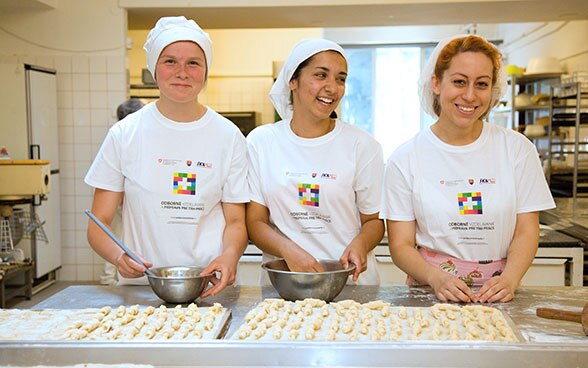
In attendance at the Ulaanbaatar awards ceremony were high-ranking Austrian and Mongolian dignatories, including the Vice-President of the Austrian Chamber of Commerce and Industry, Richard Schenz; Austrian Ambassador to Mongolia residing in Beijing, Irene Giner-Reichl; and the Mongolian Minister for Culture, Sport and Tourism, Ts. Oyungerel.
Mr Schenz presented the award to MNEC director M. Badarch and L.Shinetsetseg, Project Officer at MNEC.
“It is a great recognition of our efforts to create greener schools and communities in Mongolia, working with children,” M. Badarch said. “We take great pride in being awarded the Energy Globe – the most prestigious environmental prize worldwide – and in being chosen from more than 160 participating countries and 1000 project submissions annually.
The award is given each year to projects that conserve such resources as energy or which utilise renewable or emission-free forms of energy. The aim of the Energy Globe is to raise public awareness about sustainable environmental solutions and to motivate people to become active in this sphere.
Mongolia’s Eco-schools Development Project was selected on the basis of its success in mobilising 166 schools and in teaching young children about the importance of environmental issues and possible solutions to the challenges being faced. The project aims to improve the environmental education and knowledge of youth, and develop a national network focused on creating a better and healthier living environment.
“We are living in a world that requires new thinking about the responsible use of our natural resources. However, change will only happen if awareness about current issues and alternative solutions is raised with as many people as possible” said the the Energy Globe Foundation on its web regarding the work of the Eco school project.
“This is especially true for our young generation, who are the decision-makers of tomorrow. This year’s National Winner of the Energy Globe Award in Mongolia is paving the road to creating greener communities in Mongolia. Congratulations on this initiative.”
SDC has been supporting this movement of eco-schools since 2007.
Project highlights
- 166 eco-schools in 18 aimags (18.3 percent of all secondary schools)
- Dust reduction: 23 eco-schools could reduce dust sediments by 50 percent by greening the area
- Energy saving initiative by an eco-school in Bayankhongor aimag: Replacing red bulbs with fluorescent ones and by installing electric meter in carpenter classes saved MNT 5.6 million on electricity cost.
- Water saving initiative in Bayankhongor aimag’s Nomgon school: repairing water sink and plumber pipes saved MNT 3 million.
- ‘Family Garden’ initiative involved 340 families who have planted more than 4500 seedlings in their gardens.
